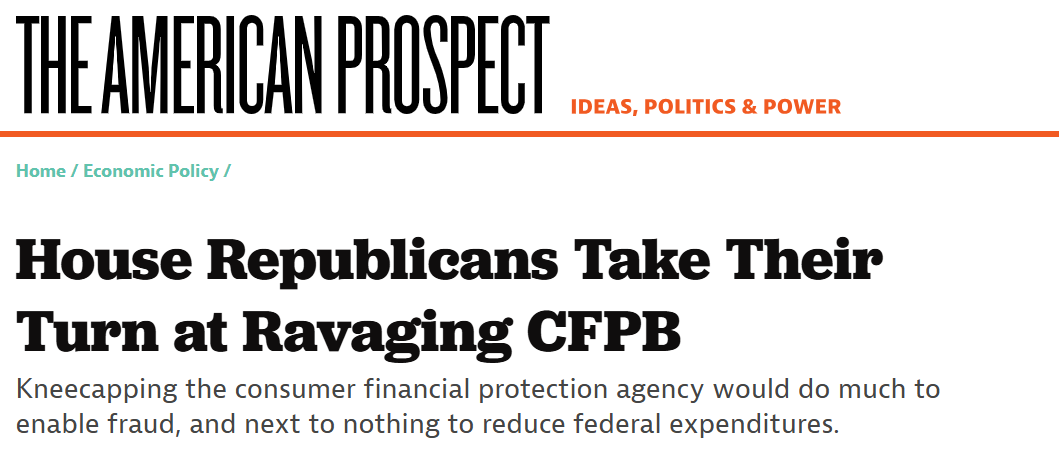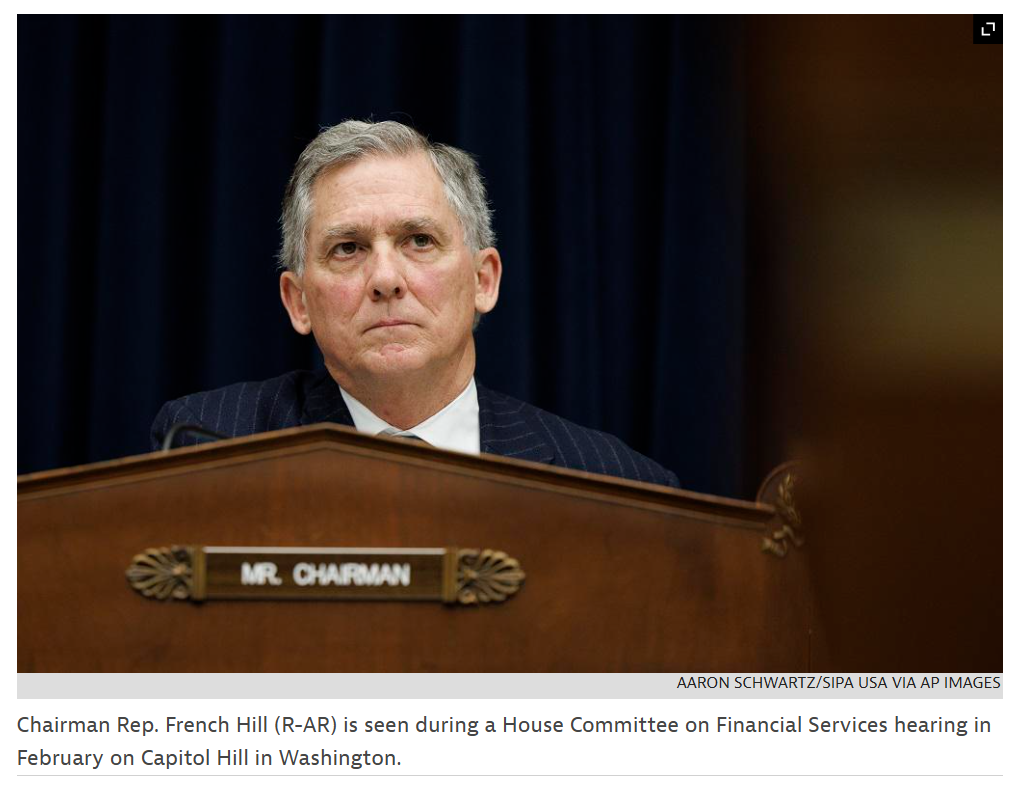House Republicans Take Their Turn at Ravaging CFPB
 https://prospect.org/economy/2025-05-01-house-republicans-take-turn-ravaging-cfpb/
https://prospect.org/economy/2025-05-01-house-republicans-take-turn-ravaging-cfpb/

Much to the delight of Wall Street and billionaires everywhere, the
Trump administration, Elon Musk’s so-called Department of Government Efficiency, and Project 2025 architect
Russell Vought have waged a war against the Consumer Financial Protection Bureau (CFPB). Yet despite numerous attempts to annihilate the financial watchdog going back to its inception in 2010, it has
stubbornly survived, perhaps because people like an agency that has helped secure $21 billion in relief for millions of wronged consumers.
Congressional Republicans are now carrying the sword that would slay the CFPB, this time under the guise of nonexistent cost savings. During a heated hearing of the House Financial Services Committee on Wednesday, Republicans advanced their
section of the giant Trump agenda budget reconciliation package, which would effectively cripple the CFPB. The Republican plan sharply reduces the existing cap on the amount of money the agency can request from the Federal Reserve annually (a staggering 70 percent funding cut), and relinquishes the CFPB’s Civil Penalty Fund to the U.S. Treasury, which would severely limit its ability to provide restitution to victims of financial fraud.
This plan to “reduce expenditures” hardly does anything to achieve that goal. “It’s not really about saving taxpayer money or anything related to the budget. It’s about getting rid of the Bureau,” Christine Hines, senior policy director at the National Association of Consumer Advocates (NACA), told the
Prospect. That sentiment was shared by House Democrats, who proposed a flurry of unsuccessful amendments to prevent the cuts. Directly addressing committee chair Rep. French Hill (R-AR), Rep. Sean Casten (D-IL) challenged Republicans’ pretenses for gutting the CFPB. “You either fund it or just admit that you’re trying to screw consumers,” Casten said. “Let’s not sugarcoat what’s going on here.”
Because the CFPB receives its funding out of Federal Reserve revenues and not congressional appropriations, there are no on-budget savings from this cap. And the total annual amount of maximum savings from the new cap, which would fall from $823 million to $249 million in the first year, with an annual inflation adjustment thereafter, is only $574 million, a minuscule amount relative to the overall federal budget but a catastrophic cut to the agency. The CFPB has routinely brought back more in consumer relief than it spends on an annual basis, but a majority of its work would be unable to be conducted with that level of funding, including statutory obligations.
snip

